
Table of Contents
The Impact of Insomnia on Daily Life
Insomnia and sleep issues are more than just a temporary state of sleeplessness; they are chronic conditions that affect millions of people worldwide. Understanding insomnia and sleep issues is crucial as it is intricately linked to various aspects of a person’s daily life, including their mental and physical health. Insomnia can lead to a plethora of issues such as increased stress levels, difficulty concentrating, and heightened anxiety. When sleep is compromised, individuals often find themselves in a vicious cycle of fatigue and irritability, which can further exacerbate their insomnia and related sleep issues. Addressing sleep issues and insomnia promptly is essential for improving overall well-being and mitigating the effects of sleep issues. Many people face sleep issues that can lead to chronic insomnia if not managed properly.
The importance of addressing insomnia and sleep issues cannot be overstated. Chronic insomnia can lead to serious health conditions, including heart disease, obesity, and diabetes. Furthermore, it can impair cognitive functions and decrease the overall quality of life. Addressing the root causes of insomnia and related sleep issues is essential, not only for restoring healthy sleep patterns but also for enhancing emotional and physical well-being. Sleep issues that remain untreated can result in long-term consequences, including persistent sleep issues and worsening insomnia.
Many individuals struggle with sleep issues, leading to chronic insomnia that can severely impact their health and daily life. Recognizing the signs of sleep issues and associated insomnia is the first step towards recovery.
When individuals encounter sleep issues, it is vital to recognize the symptoms of insomnia early on to prevent further complications.
Potential Causes of Insomnia
Addressing sleep issues quickly is key to avoiding the escalation of insomnia.
Sleep issues can manifest in various ways, including trouble falling asleep, frequent awakenings, or waking up too early. If these symptoms persist, it may indicate a deeper problem related to insomnia that requires attention.
Individuals should be aware that toxic metals can also affect sleep issues, contributing to insomnia.
Toxic Metals and Their Role in Insomnia
Identifying and understanding sleep issues can lead to better management strategies. Many people may not realize that exposure to toxic metals can significantly impact their ability to sleep and contribute to sleep issues. Metals such as lead, mercury, and cadmium have been linked to various health issues, including sleep disturbances.
Understanding the relationship between toxic metals and sleep issues is vital for developing effective interventions. By recognizing how these factors relate to sleep issues, individuals can take proactive steps towards improving their sleep quality.
Addressing sleep issues is not only important for a good night’s sleep but also crucial for overall health and well-being.
Understanding the effects of toxic metals on sleep issues can help in managing insomnia effectively.
Understanding the effects of sleep issues on daily functioning further emphasizes the need to tackle insomnia effectively.
Many people may not realize that exposure to toxic metals can significantly impact their ability to sleep. Metals such as lead, mercury, and cadmium have been linked to various health issues, including sleep disturbances. These metals can accumulate in the body and interfere with the nervous system, leading to anxiety and restlessness. Individuals concerned about their sleep quality might consider evaluating their environments for potential toxic exposure, particularly if they live in industrial areas or work with hazardous materials.
Research has shown that heavy metal poisoning can alter sleep architecture, leading to fragmented sleep and longer sleep onset latency. A comprehensive understanding of how these metals affect sleep is vital for those who struggle with insomnia. Testing for heavy metals can be a starting point for individuals looking to improve their sleep hygiene.
It’s essential to recognize that various factors can contribute to sleep issues, including stress and environmental factors.
Identifying root causes of sleep issues like hormonal imbalances can significantly improve insomnia management.
Addressing these underlying issues can help alleviate symptoms of insomnia and improve overall sleep quality.
Hair analysis can provide insights into toxic metals that may be affecting sleep issues, helping individuals to target their treatment more effectively. Understanding how to interpret hair analysis results can help address sleep issues holistically.
Hormonal Issues
For those experiencing insomnia and related sleep issues, exploring underlying hormonal causes can lead to significant improvements in sleep. Understanding the connection between hormonal imbalances and sleep issues is essential for effective management. Addressing sleep issues effectively can prevent long-term health complications related to insomnia, ensuring individuals regain control over their sleep patterns.
Overactive Thyroid or Adrenals: A Hidden Culprit
An overactive thyroid, or hyperthyroidism, can also be a hidden culprit behind insomnia. The thyroid gland plays a crucial role in regulating metabolism and energy levels; thus, an imbalance can lead to symptoms such as rapid heart rate, anxiety, and insomnia.
It’s critical to understand that untreated sleep issues, especially insomnia, can lead to significant challenges in mental and emotional health.
Proactively managing sleep issues is essential to mitigate insomnia’s long-term effects.
Logging sleep issues in a diary can reveal patterns that lead to better management strategies.
Identifying supplements that effectively address sleep issues can enhance overall sleep quality.
Incorporating strategies to manage sleep issues can significantly enhance quality of sleep.
Consulting healthcare professionals regarding persistent sleep issues can lead to tailored approaches for managing insomnia.
Researching natural remedies for sleep issues can empower individuals to take charge of their sleep health.
Stress can play a role
The adrenal glands, which produce hormones like cortisol, can become overactive due to chronic stress, leading to sleep disturbances.
Assessing Your Health: Tests and Procedures
Making lifestyle changes can significantly reduce sleep issues and enhance overall health. Implementing these changes can lead to a reduction in sleep issues over time. Creating a restful environment can mitigate sleep issues and improve overall comfort.
For those experiencing insomnia without any clear explanation, it may be beneficial to check toxic heavy metal exposure, hormonal, thyroid and adrenal function. Addressing these underlying issues can dramatically improve sleep quality and overall health.
Effective management of sleep issues is crucial for overall health and improving life quality.
Hair Analysis for Toxic Metals
Consulting professionals can help manage severe cases of sleep issues effectively.
One of the effective ways to assess for heavy metal exposure is through hair analysis. This test can reveal the presence of various toxic metals in the body and provide insights into health risks associated with these substances. Hair analysis is non-invasive and can serve as a valuable tool for individuals looking to pinpoint potential causes of their insomnia.
The results from a hair analysis can guide individuals toward specific dietary changes or detoxification protocols that may alleviate symptoms of insomnia. Working with a healthcare professional who understands the nuances of toxic metal exposure can help in interpreting the results and determining the best course of action.
Healthcare consultations can provide insights into managing sleep issues with tailored approaches.
Understanding cognitive-behavioral therapy can also provide strategies for overcoming sleep issues.
Other Diagnostic Procedures
Recognizing the impact of sleep issues is essential for both individuals and healthcare providers.
Aside from hair analysis, there are various other diagnostic procedures that can help individuals understand the underlying causes of their insomnia. Blood tests can assess thyroid function and hormone levels, while sleep studies can evaluate sleep patterns and disturbances. A sleep study, or polysomnography, is particularly beneficial for diagnosing conditions like sleep apnea, which can co-exist with insomnia and further complicate sleep issues.
Addressing and understanding sleep issues can promote overall health and well-being. Diagnostic tests which can be done at home can shed light on various contributing factors to sleep issues, including hormonal assessments.
Keeping a sleep diary, noting bedtime routines and sleep quality, can also provide invaluable information that healthcare professionals can use to identify patterns and potential triggers for insomnia. This proactive approach to understanding one’s health can significantly contribute to effective treatment strategies.
Natural Solutions for Combating Insomnia
Supplements to Improve Sleep Quality
For those seeking natural remedies for insomnia, a variety of supplements have been shown to enhance sleep quality. Melatonin, a hormone that regulates sleep-wake cycles, is one of the most widely recognized supplements for promoting sleep. Studies suggest that melatonin can reduce sleep onset time and improve overall sleep quality, particularly for individuals with circadian rhythm disorders.
Other supplements, such as magnesium, valerian root, and chamomile, have also been found to support relaxation and improve sleep quality. Magnesium plays a critical role in nerve function and muscle relaxation, making it beneficial for those experiencing insomnia. However, it’s essential to consult with a healthcare provider before starting any supplement regimen, as individual needs can vary significantly.
Lifestyle Changes for Better Sleep
In addition to supplements, lifestyle changes can play a pivotal role in improving sleep quality. Establishing a consistent sleep schedule by going to bed and waking up at the same time every day can help regulate the body’s internal clock. Creating a relaxing bedtime routine that might include activities such as reading, meditating, or gentle stretching can signal to the body that it is time to wind down.
Moreover, optimizing the sleep environment is crucial. This includes keeping the bedroom dark, cool, and quiet, which can enhance the likelihood of falling and staying asleep. Limiting screen time before bed and reducing caffeine and alcohol consumption can also positively influence sleep quality. These small yet impactful changes can lead to significant improvements in managing insomnia.
When to Seek Professional Help
Recognizing Severe Cases of Insomnia
While many individuals can manage mild insomnia with lifestyle changes and natural remedies, recognizing the signs that professional help is needed is crucial. Severe insomnia, characterized by prolonged periods of sleeplessness that affect daily functioning, should not be ignored. Indicators of severe insomnia may include intense fatigue, mood swings, difficulty coping with daily tasks, and chronic health issues that arise from lack of sleep.
Recognizing and addressing sleep issues early on can prevent the progression of insomnia-related health problems.
If insomnia persists despite attempts to implement lifestyle changes or if it begins to interfere with quality of life, it is time to seek professional assistance. Timely intervention can prevent the escalation of insomnia into more serious health issues, including anxiety disorders or depression.
Consulting Healthcare Professionals
Consulting healthcare professionals, such as a sleep specialist or mental health provider, can provide individuals with tailored strategies to manage their insomnia. These professionals can conduct comprehensive evaluations, recommend appropriate tests, and create personalized treatment plans that address both the symptoms and the underlying causes of insomnia.
In some cases, cognitive-behavioral therapy for insomnia (CBT-I) may be recommended. This evidence-based approach focuses on changing thoughts and behaviors that contribute to sleep disturbances. By addressing the psychological aspects of insomnia, individuals can develop healthier sleep patterns and improve their overall sleep hygiene.
Conclusion
Recap of Key Points
Insomnia can significantly impact one’s quality of life, and understanding its causes is essential for effective management. Toxic metals and hormonal imbalances are just a few of the potential culprits that can lead to sleep disturbances. Assessment through hair analysis and other diagnostic tests can help identify these issues, paving the way for targeted solutions.
Natural remedies, including supplements and lifestyle changes, can enhance sleep quality, while recognizing the signs of severe insomnia can prompt timely professional intervention. Addressing insomnia not only improves sleep but also contributes to overall health and well-being.
Identifying sleep issues early on can facilitate timely interventions and prevent the escalation of insomnia into more severe health problems.
Encouragement to Take Action
By taking proactive steps to understand and manage insomnia, individuals can reclaim restful nights and energized days. Whether through natural solutions, lifestyle adjustments, or seeking professional help, it’s never too late to take charge of your sleep health.
FAQs
What are the most common symptoms of insomnia?
The most common symptoms of insomnia include difficulty falling asleep, waking up frequently during the night, waking up too early, and feeling unrefreshed after a night’s sleep. Individuals may also experience daytime fatigue, irritability, and difficulty concentrating.
How can I tell if my insomnia is serious?
Severe insomnia is characterized by prolonged sleeplessness that significantly affects daily functioning. If you find that your lack of sleep is impacting your mood, cognitive abilities, or overall health, it may be time to seek professional help.
Are there any side effects to using sleep supplements?
While many sleep supplements are considered safe for short-term use, they can have side effects such as drowsiness, dizziness, or digestive issues. It’s essential to consult with a healthcare professional before beginning any supplement regimen to ensure safety and appropriateness.
Can lifestyle changes really improve sleep quality?
Yes, lifestyle changes can significantly improve sleep quality. Establishing a consistent sleep routine, optimizing the sleep environment, and reducing caffeine and screen time before bed can all contribute to better sleep hygiene and overall health.
What should I do if natural remedies do not work for my insomnia?
If natural remedies fail to improve your insomnia, it is advisable to consult a healthcare professional. They can help assess any underlying health conditions and recommend appropriate treatment options, including cognitive-behavioral therapy or medication if necessary.
What are the 5 most common sleep disorders?
Insomnia, sleep apnea, restless leg syndrome, narcolepsy, and REM sleep behavior disorder.
How to fix a sleep issue?
Get a consistent sleep schedule, limit screen time before bed, create a relaxing bedtime routine, avoid caffeine and alcohol, and exercise regularly.
What is sleep anxiety?
Sleep anxiety is a type of anxiety disorder characterized by persistent worry or fear about falling asleep or staying asleep.
Why am I having very disturbed sleep?
Poor sleep quality can be caused by several factors, including stress, anxiety, medical conditions, or poor sleep habits. I recommend speaking with a healthcare professional to identify the underlying cause and develop an appropriate treatment plan.
Products
At Home Tests
-
←→
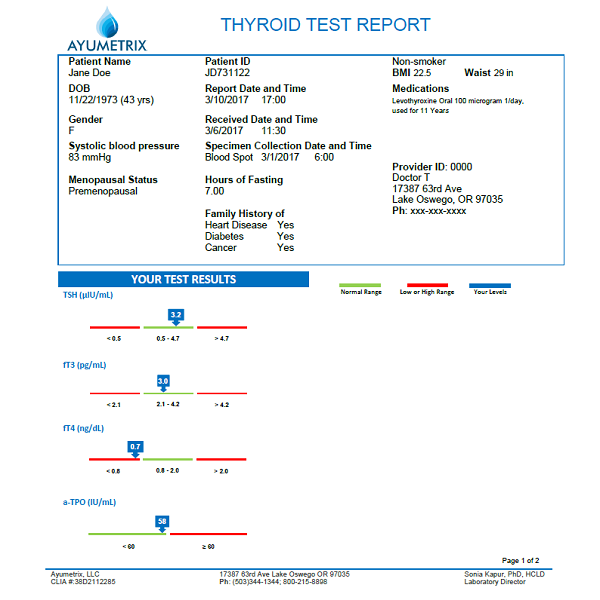
Ayumetrix Thyroid Blood Spot Test
$135.00Ayumetrix Thyroid Blood Spot Test for TSH, fT3, fT4, TPO, provides an assessment of thyroid function.- Buy 2 at $130.00
Ayumetrix Thyroid Blood Spot Test
$135.00Successfully Added to your Shopping CartAdding to Cart... -
←→
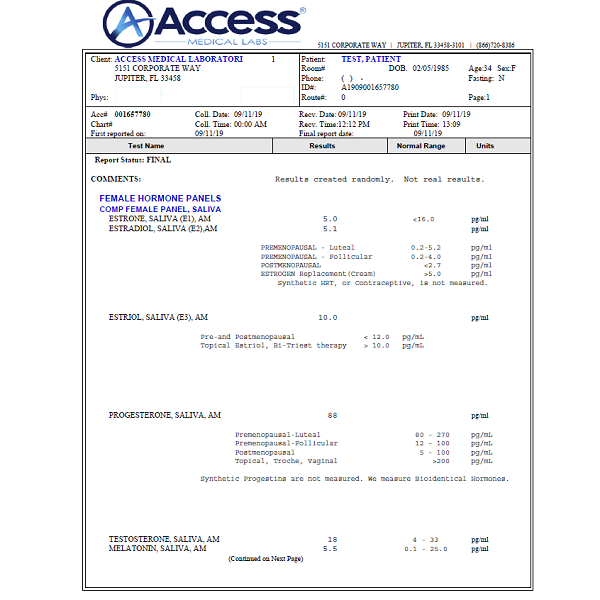
Access Labs Female Hormone Profile Saliva
$189.00$169.00The female hormones saliva test is a simple at home test which reports levels of female hormones.- Buy 2 at $164.00
Access Labs Female Hormone Profile Saliva
$189.00 $169.00Successfully Added to your Shopping CartAdding to Cart... -
←→
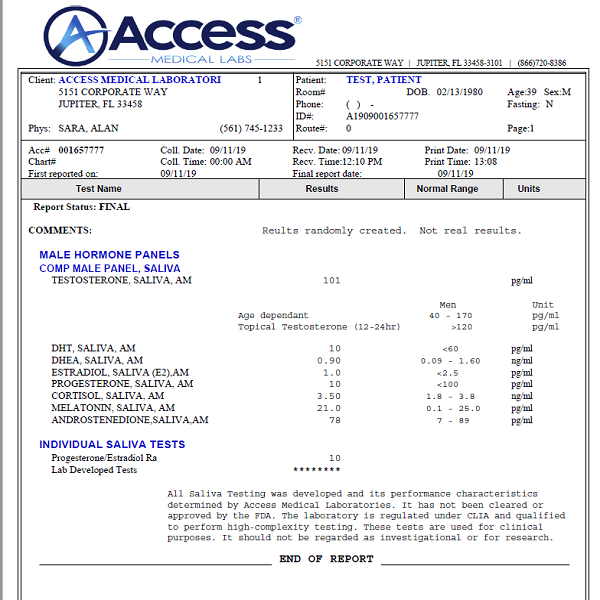
Access Labs Male Hormone Profile Saliva
$189.00$169.00The female hormones saliva test is a simple at home test which reports levels of female hormones.- Buy 2 at $164.00
Access Labs Male Hormone Profile Saliva
$189.00 $169.00Successfully Added to your Shopping CartAdding to Cart... -
←→
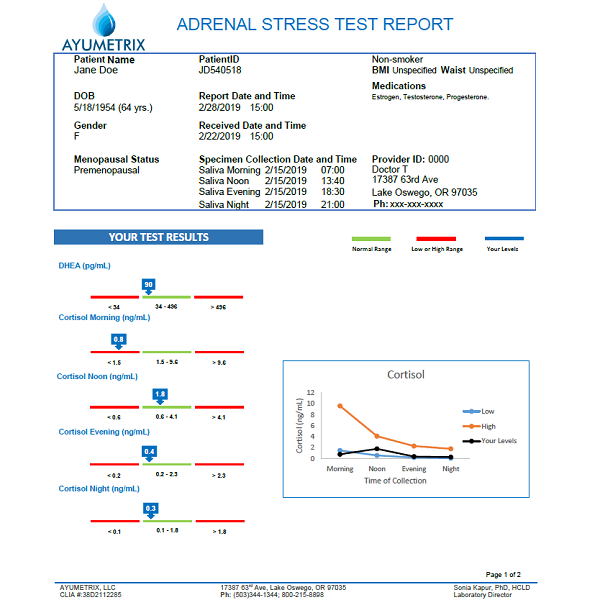
Ayumetrix Adrenal Stress Test Saliva
$125.00A quantitative ELISA analysis of hormones that affect adrenal healthMaximum quantity exceededMinimum purchase amount of 0 is requiredAyumetrix Adrenal Stress Test Saliva
Thyroid Endocrine Tests, At Home Health Tests, Anxiety, Stress, Depression Solutions, Fatigue Solutions$125.00Successfully Added to your Shopping CartAdding to Cart... -
←→
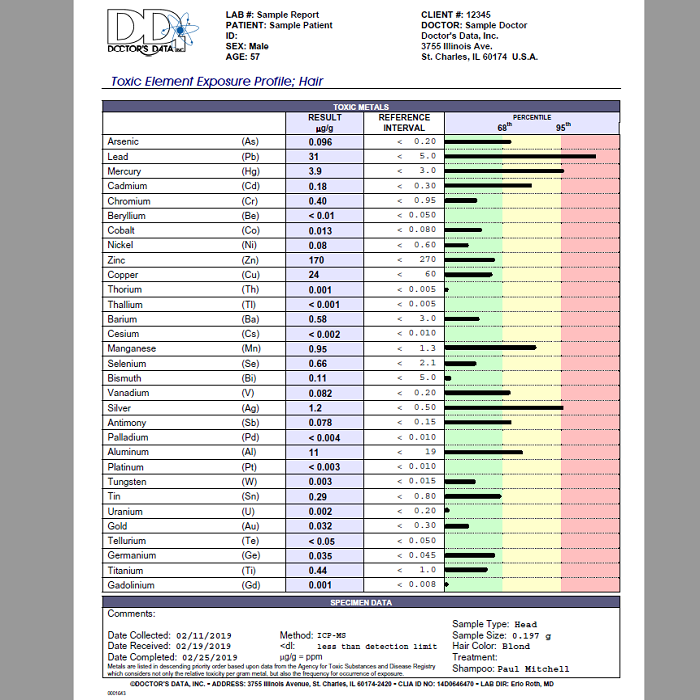
Doctors Data Hair Toxic Elements Test
$159.00$123.00Doctors Data Hair Toxic Elements Test is a noninvasive screening hair test reports an expanded lineup of toxic metals as well as specific nutrient elements.- Buy 2 at $119.00
Doctors Data Hair Toxic Elements Test
At Home Health Tests, Toxic Metals Tests, Hair Tests, Autism Tests, Detox Solutions, Diabetes Solutions, Fatigue Solutions, Memory Loss Solutions, Autism Solutions$159.00 $123.00Successfully Added to your Shopping CartAdding to Cart... -
←→

Analytical Research Labs Hair Test
$179.00$149.00Providing a mineral blueprint of one’s biochemistry, an Analytical Research Labs Hair Minerals Test reports levels of minerals and heavy metals in your body giving possible reasons for your symptoms, with suggestions for nutritional supplements and diet changes. Hair tissue mineral analysis can provide pertinent information about balanced nutrition, one’s metabolic rate, energy levels, sugar and carbohydrate tolerance, stage of stress, immune system and glandular activity.- Buy 2 at $145.00
Analytical Research Labs Hair Test
$179.00 $149.00Successfully Added to your Shopping CartAdding to Cart... -
←→
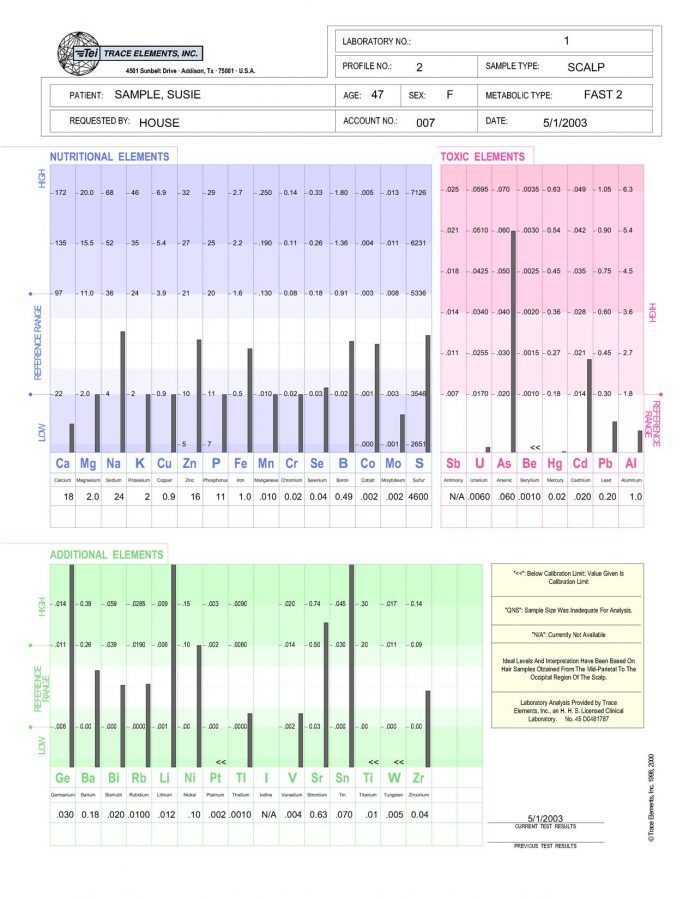
Trace Elements Nutritional Deficiencies Hair Test
Nutritional Tests, At Home Health Tests, Toxic Metals Tests, Hair Tests, Autism Tests, Immune System Tests$188.00 $148.00Successfully Added to your Shopping CartAdding to Cart... -
←→

Alletess Food Allergy Sensitivity Test
$269.00$223.00Food sensitivities may be causing many of your health issues. Test now with this convenient at home test; no lab visit required.Alletess Food Allergy Sensitivity Test
At Home Health Tests, Allergy Tests, Blood Spot Tests, Allergy Solutions, Lung Solutions, Gastrointestinal Solutions$269.00 $223.00Successfully Added to your Shopping CartAdding to Cart...
Supplements
-
←→

Magnesium Orotate
Supplements, Mineral Supplements, Heart Solutions, Immune System Solutions, Gastrointestinal Solutions, Allergy Solutions$25.10Successfully Added to your Shopping CartAdding to Cart... -
←→
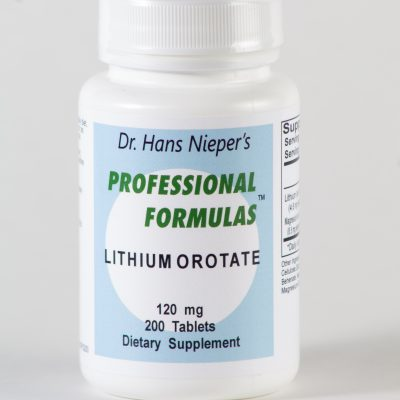
Lithium Orotate
Supplements, Mineral Supplements, Autism Solutions, Nerve Damage Solutions, Immune System Solutions, Gastrointestinal Solutions$16.30Successfully Added to your Shopping CartAdding to Cart... -
←→

Calcium 2-AEP
Supplements, Mineral Supplements, Muscle Solutions, Anxiety, Stress, Depression Solutions, Bone Solutions$14.40Successfully Added to your Shopping CartAdding to Cart...
References
- https://links.e.response.mayoclinic.org/EmailPreview-GeneralHealth
- https://www.nhlbi.nih.gov/health/insomnia
- https://www.nccih.nih.gov/health/sleep-disorders-and-complementary-health-approaches
- https://www.fda.gov/consumers/consumer-updates/taking-z-drugs-insomnia-know-risks
- https://aasm.org/
- https://sleepeducation.org/sleep-disorders/insomnia/
- https://www.nhlbi.nih.gov/health/insomnia/causes
- https://www.nccih.nih.gov/health/melatonin-what-you-need-to-know
